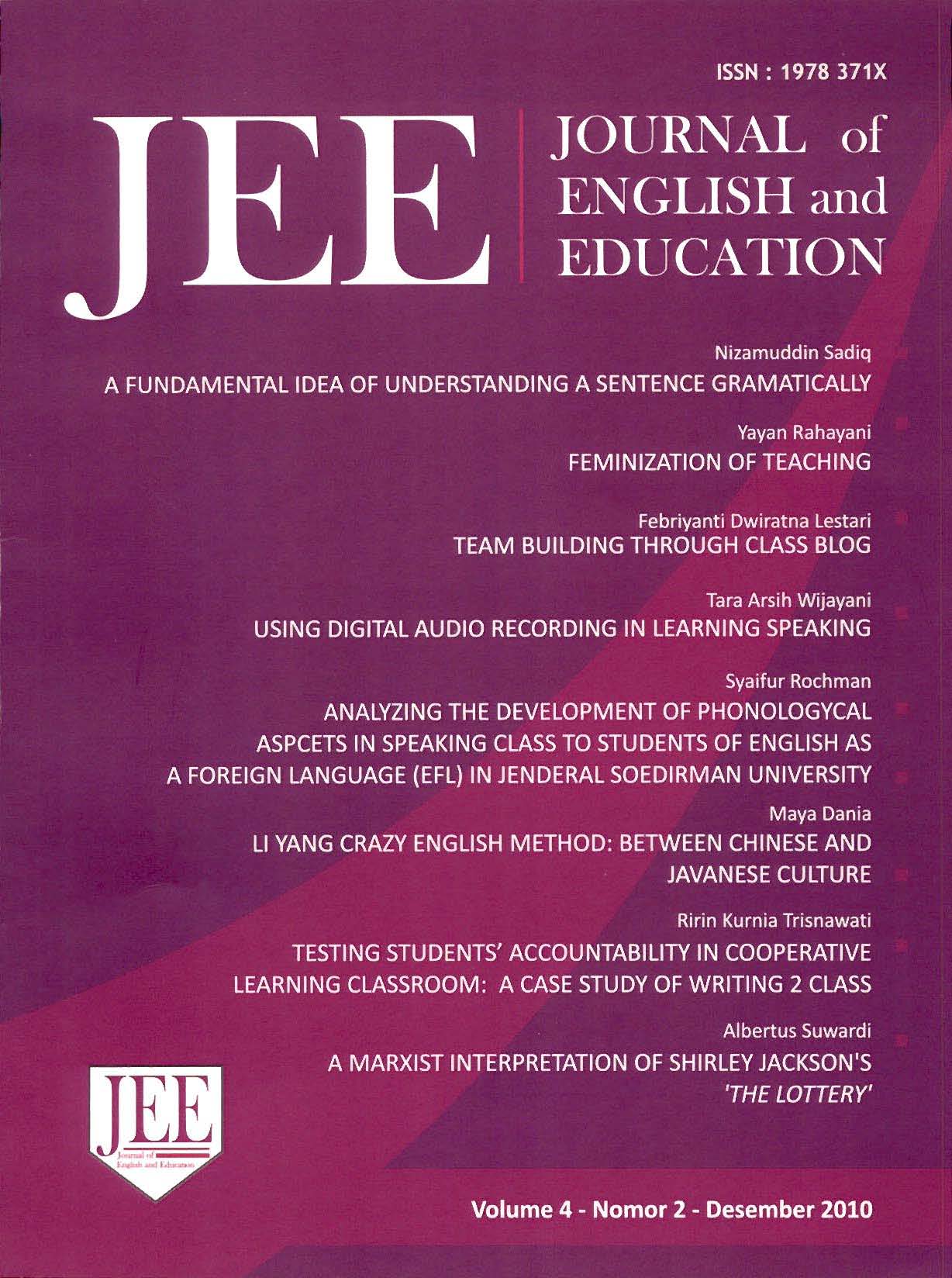Main Article Content
Abstract
A classroom implementing cooperative learning (CL) has to carefully design and organize the lesson so that each student could interact with others, and most importantly all students are motivated to increase each, other's process of learning. It is because CL will benefit the students when they perform interaction structured by interdependence among the students. However, one major issues emerging under the cooperative learning classroom is to make sure that students gain the lesson objectives of the • designed class, and in fact, the students really learn each other as well. The teacher needs to know best that students work cooperatively among the group, and each student contributes during the learning process. Students' accountability needs to be assessed in order to achieve the benefits of CL. Therefore, one primary way to ensure accountability is through testing.
This research report is to investigate both the individual and group accountability in the cooperative learning classroom and whether or not CL setting benefits the students. The research is conducted in Writing 2class in which students work in-group by doing the team project writing on paragraphs. Students' individual and group accountability is assessed by the quizzes, and it is cross-checked through the class discussion.
The study shows that students' individual accountability is supported by their competence. The performance of group accountability is closely related to their competence. Their answers and responses show positive effects of working and learning each other; therefore, they do benefit from this CL setting in Writing 2 class.
Keywords
Article Details
Copyright (c) 2016 JEE, Journal of English and Education

This work is licensed under a Creative Commons Attribution-ShareAlike 4.0 International License.
Authors who publish with this journal agree to the following terms:
- Authors retain copyright and grant the journal right of first publication with the work simultaneously licensed under a Creative Commons Attribution-ShareAlike 4.0 International License that allows others to share the work with an acknowledgment of the work's authorship and initial publication in this journal.
- Authors are able to enter into separate, additional contractual arrangements for the non-exclusive distribution of the journal's published version of the work (e.g., post it to an institutional repository or publish it in a book), with an acknowledgment of its initial publication in this journal.
- Authors are permitted and encouraged to post their work online (e.g., in institutional repositories or on their website) prior to and during the submission process, as it can lead to productive exchanges, as well as earlier and greater citation of published work (See The Effect of Open Access).

